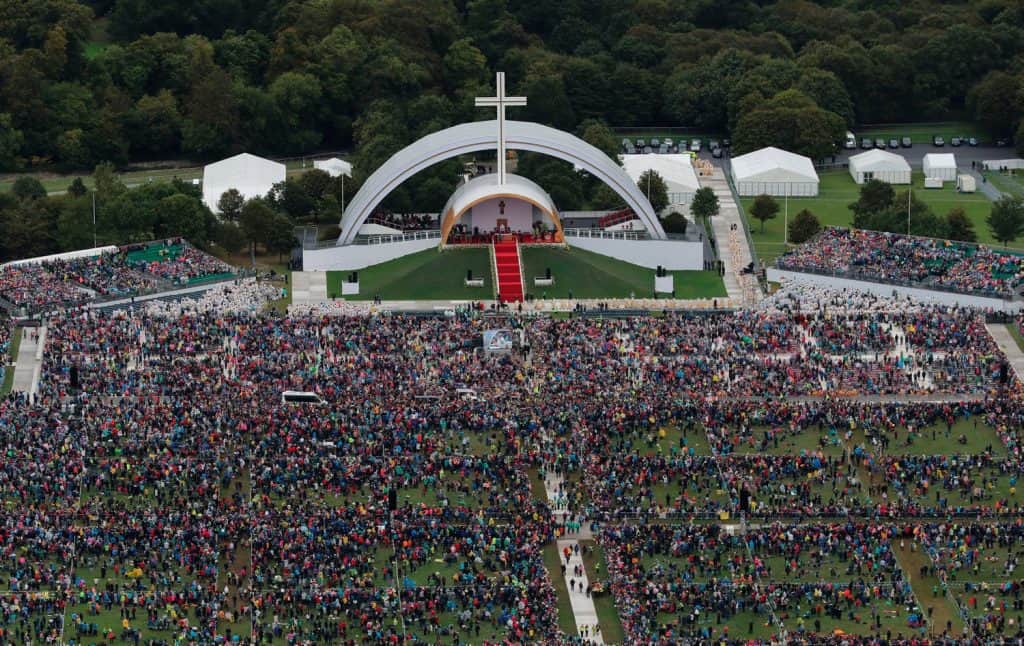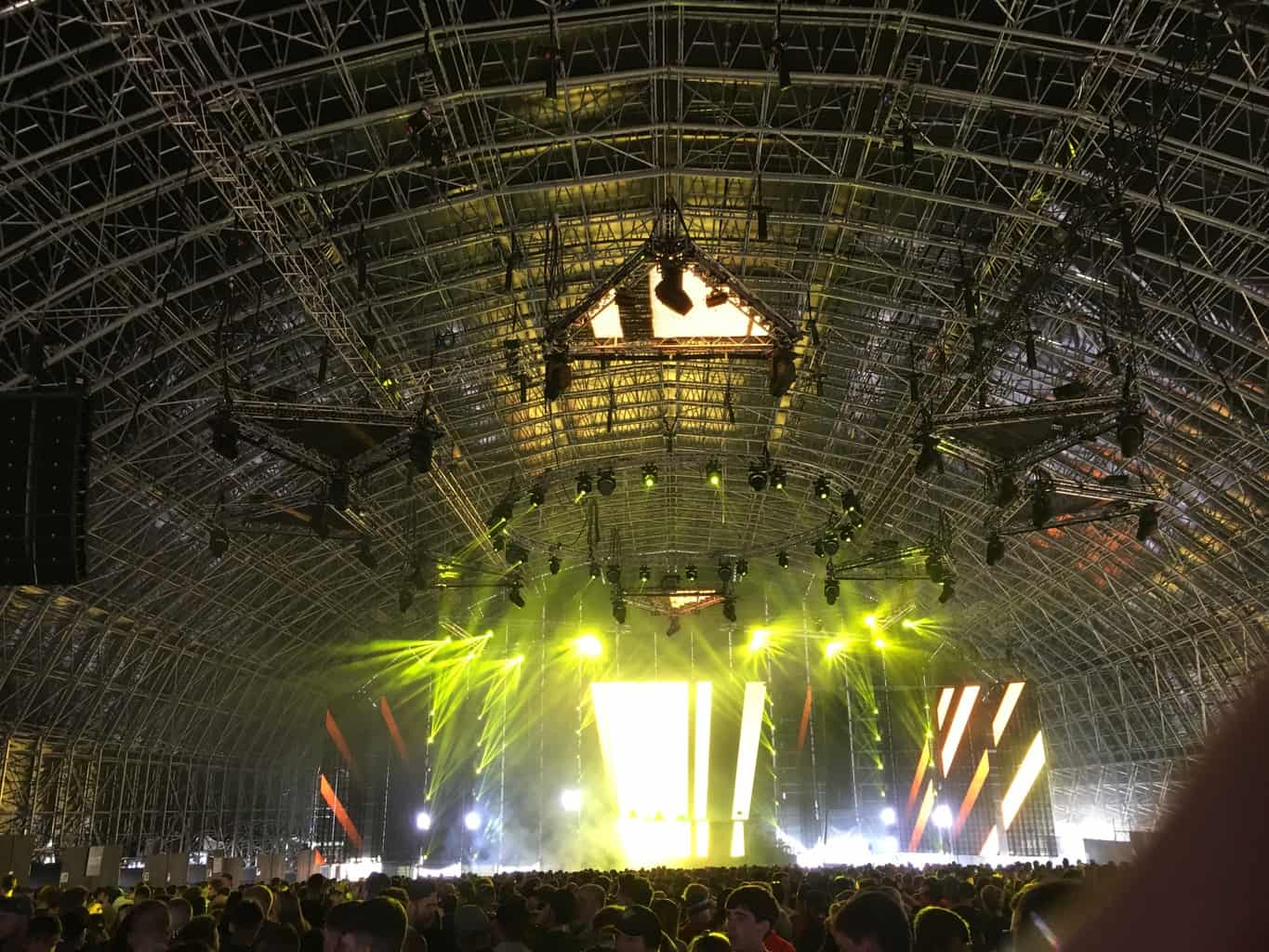By 2017 the UK event equipment hire market had reached an annual value of £600million, according to AMA Research. For most people this sector means audio and lighting rigs, props, effects, portaloos and security fencing, but larger structures, staging and seating accounts for one of the biggest proportions of industry spend.
It’s understandable, really. Britain, particularly in the summertime, is awash with large scale events that require significant investment in structural assets to pull off – from Glastonbury to Wireless. And music festivals are just one side of the story.
Acorn Event Structures has been delivering world-class stages and other structural equipment to clients across the globe since 1996. Last year alone, the firm’s expertise helped make a bespoke stage for Pope Francis, a specialist theatre for Shakespeare’s Rose Theatre, and worked at major festivals such as Creamfields, Boomtown, Summertime Ball and Car Fest, to name but four.
Demand continues to grow in 2019, as the events calendar becomes ever-more packed with dates. With this in mind we contacted Emma Petty, Acorn’s marketing manager, to gain a better insight into the realities of this often-unsung end of the scaffold and temporary structures game, and learn a little about what the future might hold.
“From its inception, Acorn received enquiries from event companies to supply temporary scaffolding solutions and consequently, in 2006, took the decision to launch a stand-alone event-oriented company to service this activity,” she explains how the Leeds-based Acorn Scaffolding came to give birth to Acorn Event Structures.
“Since then the operation has grown from strength to strength and now has sub-divisions dedicated to scaffold, staging and bespoke structures and continually invests in developing and refining products for the event industry.”
Perhaps one of the most interesting aspects to Acorn’s work is not simply the fact that they create public-access scaffold for a wide variety of sites, but by nature they are also involved in the creative process of event development.
Organisers may have a vision, but only the experts understand whether that can be achieved, and how. Functional industry meeting design-led thinking; a combination that isn’t as commonplace as many might think.
“Acorn’s unrivalled creative expertise and forward-thinking engineering solutions surpass those of other temporary structures providers in the market,” she adds.
“We are continually chosen ahead of other suppliers because of our ability to translate our clients’ visions into reality and lead into new territories of structural design.”
Petty cites a number of examples to evidence her point. Europe’s first ever pop-up Shakespearean theatre is arguably the most revealing.
Inspired by the London Rose Playhouse, which was built in 1587 and as such predates the world-famous Globe by more than a decade, Acorn was tasked with developing and delivering a modern interpretation of the 13-sided 16th Century structure. More challenging still, they had a three-week timeframe in which to complete.
The company responded with a design offering 600 seats on triple-tiered balconies and space for a further 350 people at ground level. No seat was more than 15 metres from the stage, with the overall site replicating the original building while also updating it.
“We were delighted to be part of such an important local project, which created a cultural legacy for our community and supported local industry. We worked closely with our client to design and engineer a unique and functional performance area,” says Andy Nutter, Acorn’s managing director.

Pope Francis’ Papal Mass in Ireland is another example that shows the level of innovation involved in Acorn’s builds. Set the task of conceiving a stage that could completely surround the location of the event, Papal Cross, the solution was a 60m Mega Dome structure, which itself included another internal domed roof offering weather protection for His Holiness, complete with 120 linear meters of glass balustrade. The brief also required a plaque commemorating Pope John II’s 1979 visit to the site remained in place and visible.
As with many of Acorn’s efforts, Layer scaffold systems were used to achieve the best possible results, with the firms having been partners for over 15 years. That relationship shows no sign of changing any time soon either given Acorn’s commitment to continue providing the level of service it currently does.
“Our events clients are continuously pushing the boundaries in staging, production, lighting, sound and visuals to provide a unique visitor experiences and Acorn is proud to be instrumental in helping our clients meet their objectives with scaffold event structures capable of underpinning increasingly ambitious production specifications,” says Petty.
The coming years looks bright for the events industry right now, both in the UK and beyond, and the same can be said for Acorn’s specialist team. With that in mind we’re keen to see what the firm’s future endeavours and accomplishments might involve.
This article was first published in ScaffMag Issue 6
